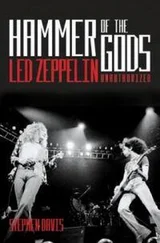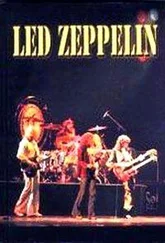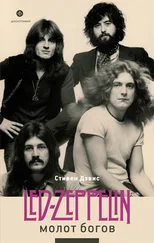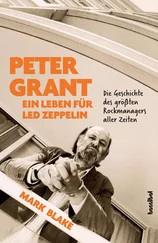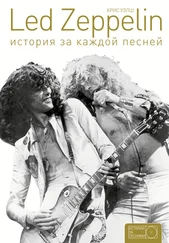I returned Danny’s call and left a message with his assistant. I had met him three years earlier, in 1972, when I was an editor at Rolling Stone magazine. A mutual friend had told me about Danny wanting to break into the music business in New York and asked if I could assign him a few record reviews so he could build a clip file and tell prospective employers that he wrote for Rolling Stone, which at the time was an instant entrée into the booming music industry of the 1970s. I met with Danny at our friend’s flat on West 79th Street, and he struck me as a sincere and very spiritual person who knew a hell of a lot about rock & roll and music in general. He was also totally hilarious, had survived a youthful era of contraband and firearms, and had come out of it something of a Hindu/Buddhist angel. I assigned Danny a review of the new comeback album by Lloyd Price, a star of fifties rock & roll, and Danny nailed it. A few clever Rolling Stone reviews later, he landed a job with Lee Solters, the doyen of Hollywood press agents, whose main client was, famously, Frank Sinatra.
One day in 1972, Danny flew to Paris with Solters to meet a new client—Led Zeppelin. The band had a serious problem with the rock press, who generally hated them for arrogance, pomposity, “heavy-osity,” and especially for their incredible success with young kids. Zeppelin also had a problem with the mass media in general, which totally ignored the band despite repeated attempts to alert the world that Led Zeppelin was outselling the biggest bands of the day—the Stones, The Who, Jethro Tull, and Yes.
Danny explained to Solters that Led Zeppelin had a negative reputation in the rock world. There were widespread rumors in the music industry and its demimonde that guitarist Jimmy Page, whose interest in black magic had been publicized in England, had made a deal with the devil to ensure the band’s success. There were stories about some of the band’s brutality toward the young women, so-called groupies, who were drawn to them, especially in Los Angeles. Rock writers, notably in England, claimed that members of the band insulted and abused them. A reporter for Life magazine claimed she’d been stripped of her clothes, and feared she was going to be raped, in the band’s dressing room in 1969. Rolling Stone’s critics complained that Led Zeppelin recycled old blues songs into bombastic anthems that sold millions without giving credit (and paying royalties) to the still-living bluesmen who wrote the original songs.
In short, Danny explained, Led Zeppelin had the worst reputation of any band in the world. All Danny’s friends in the influential New York music media thought Led Zeppelin were wild barbarians, and they were literally afraid of the band.
So, Solters asked, what’s our pitch?
Danny told his boss that Zeppelin were extremely famous among their young fans, but now the group needed the mainstream media in order to grow even bigger. He suggested that Led Zeppelin play a few well-publicized benefit concerts during their 1973 American tour, supposedly in aid of a hypothetical blues museum that would supposedly be located in some Southern locale. Solters said he thought this was an okay idea.
Danny and Solters attended Led Zeppelin’s sold-out Paris concert at the Palais des Sports that night. As the band blasted into their opening number, “Rock and Roll”—louder than bombs—Lee Solters, a middle-aged man in a suit and tie, stuffed tissue in his ears. Then he leaned over and said to Danny: “I want you to handle this.”
The next day, Danny and Solters met with Led Zeppelin’s manager, Peter Grant. A huge, flamboyant, ex-professional wrestler, Grant was like the fifth member of the band. He was also feared for outbursts of rage and violence against anyone who threatened his band, to whom he was fiercely loyal. Undaunted, Solters told Grant that he thought they could help with Zeppelin’s image problem. Grant glared at him. “What image problem would that be?” Quoting Danny, Solters told Grant that the media thought Led Zeppelin were wild barbarians.
Peter Grant exploded in laughter.
Later that day, Danny and Solters were introduced to Led Zeppelin in a luxurious suite at the Hotel Georges V.
Grant to Solters: “Tell the lads what our image is in America. What was that word you used?”
Solters nodded to Danny, who gulped. Danny to Led Zeppelin: “Well, uh, the press … at least in New York, think you’re like … mild barbarians.”
The whole band chuckled at this. Brushing long blond ringlets from his eyes, Robert Plant spoke first. He explained that when Led Zeppelin landed in Southern California in 1968, he was nineteen years old, and he just went crazy, but that was all in the past. Now Led Zeppelin were mature family men, successful artists, and all the old tales of groupies and mayhem were gross exaggerations anyway. Now they were looking for someone to tell their side of the story.
Drummer John Bonham was interested in the idea. Hulking, sober, and seemingly benign, he asked the two American publicists if they could help the band reach an even bigger audience—“the people that don’t know about us?”
Bassist John Paul Jones didn’t say a word. To Danny, it seemed as if he didn’t even want to be there and couldn’t care less what the press, or anyone, thought of Led Zeppelin.
Jimmy Page said very little, other than some bitter remarks about Rolling Stone and its persistently negative coverage of Zeppelin, when it covered them at all. Jimmy didn’t need to say much, Danny told me later, because “he was just such a star, with the long black hair, the eyelashes, the corrupt choirboy’s face. Stardom seemed to radiate out from him.”
Danny pitched the blues museum idea, and they seemed to like it. In the end they agreed that Danny would be Led Zeppelin’s publicist for their 1973 tour of America. Danny attended every show of the tour, riding with the band on their private jet, Starship One, and helped with the media frenzy when Led Zeppelin’s hotel safe deposit box was robbed of $180,000 in New York. When the tour was over, Peter Grant hired Danny to be Led Zeppelin’s full-time publicist, working out of the band’s Manhattan office on Madison Avenue.
Two years later, Led Zeppelin’s 1975 North American tour was looming, and Danny was on the phone to me. “Hey, man, how are you? Do you have a minute? Do you want to come on the road with Led Zeppelin? You do? That’s great! Can you get a magazine assignment? You think you can? Terrific. I only need a letter from your editor. Let me know. I’ll save you a seat on the Starship. Gotta go. God bless you—good-bye.”
CHAPTER 4 Vision of the Future
Ihad first heard about Led Zeppelin seven years earlier, in the autumn of 1968. I was a university student and the editor of the college newspaper. I knew a guy named Don Law, who had graduated the previous June and was now the manager of the Boston Tea Party, the city’s rock venue and electric ballroom. (Don’s father, also named Don Law, had produced all the recordings of blues legend Robert Johnson in the 1930s.) One day I heard that a new band from England, the Jeff Beck Group, was playing the Tea Party, so I called Don Law and arranged for press tickets for me and our paper’s star photographer, Peter Simon.
When we got to the Tea Party, housed in a former temple in Boston’s South End, Don ushered us into the dressing room to meet the band. I was excited because I was a massive fan of the rip-roaring Yardbirds, whose raving, improvised elaborations on the R&B format had revolutionized rock & roll and propelled it into what was being called hard rock. Jeff Beck had replaced original Yardbirds guitarist Eric Clapton a couple years earlier and had now left to go on his own with a new band.
Читать дальше


![Мик Уолл - Когда титаны ступали по Земле - биография Led Zeppelin[When Giants Walked the Earth - A Biography of Led Zeppelin]](/books/79443/mik-uoll-kogda-titany-stupali-po-zemle-biografiya-thumb.webp)


